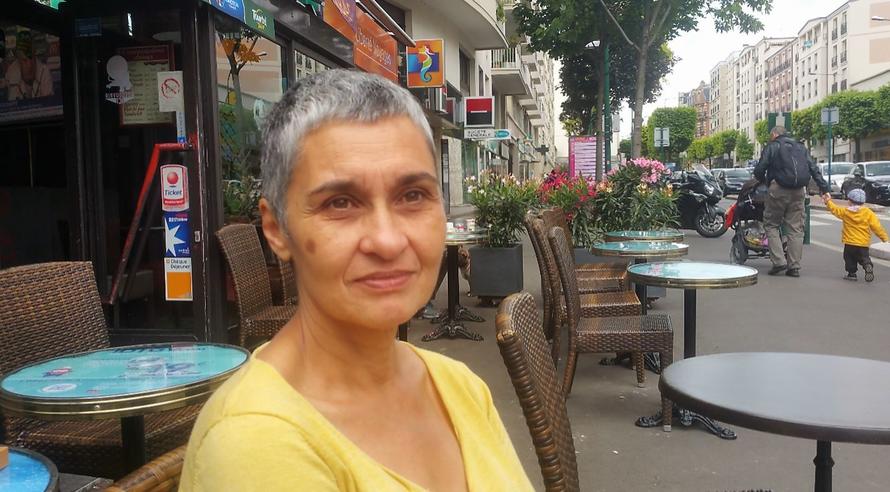A left-wing French politician is suing six women, two witnesses and four journalists involved in a 2016 #MeToo sexual misconduct scandal that ruined his career, yet resulted in no charges after a nine-month judicial investigation.
Former Paris city official and prominent Green Party member Denis Baupin filed a defamation lawsuit on Monday after he was accused in May 2016 of sexually harassing 14 women who said he groped, “sexted,” or otherwise harassed them over a multi-year period between 1998 and 2013, according to The Independent. Four of the women filed criminal complaints for sexual harassment.
Most of the women were also members of the Green Party, which was led by Baupin’s wife at the time, Emmanuelle Cosse.
Baupin – who has denied the charges, resigned as vice president of the lower house of parliament in May 2016 after the claims were published by news website Mediapart and broadcast on radio station France Inter. His lawyer, Emmanuel Pierrat, said his client did not break the law and wants to “fully clear his name” by proving that the news publications committed journalistic misconduct and were not fair in their coverage.
According to Pierrat, Baupin’s “reputation, his family, his life were broken” by the allegations.
“My client has said all he has to say to investigators. He was never [legally] pursued, he has been destroyed by this affair. We are attacking the media who lacked any kind of caution and who published false information with contempt for the presumption of innocence,” added Pierrat.
Police interviewed 50 people during the nine-month investigation which ended with prosecutors declining to press charges – citing the expiration of a three-year statute of limitations. That said, the women gave “measured, consistent statements,” according to investigators, who added that witness corroborations created a fact pattern that supported allegations which “may for some of them be classified as criminal.”
Journalists and individuals need to show they acted in good faith or prove they told the truth as a defence against defamation under French law. A conviction is punishable by a maximum fine of €45,000 (£39,000).
Media reports are also assessed by the additional criteria of the legitimacy of journalists’ goals in producing a story, whether they demonstrate an absence of personal animosity, prudence and balance, and the quality of the investigation.
Mr Pierrat said “none of them is fulfilled” in the Mediapart and France Inter pieces on Mr Baupin. –The Independent
Three of the defendants in Baupin’s defamation case say they plan to speak for other women who requested anonymity or have yet to share their #MeToo stories.
Former Green Party spokeswoman Sandrine Rousseau, who accused Baupin of grabbing her breast during a 2011 meeting, said: “The question is: will justice send the message that women must remain silent?”

“It’s an important message, a message saying that women can speak out – or not.”
Another member of the Green Party who serves on the Paris regional council, Annie Lahmer, said it’s her “duty” to speak out. Lahmer says that in 1999 Baupin chased her around an office desk while she attempted to escape his clutches. At the time, Baupin was the national party spokesman, while Lahmer was a staffer. Lahmer says Baupin threatened her career if she rebuffed his advances.

“In court, I’m going to say it’s inadmissible that some men who hold power consider that kind of behaviour as normal. It is not,” said Lahmer.
Former politician Isabelle Attard said Baupin sexually harassed her with dozens of inappropriate text messages in 2012 and 2013.
“I was just an activist who then became a lawmaker facing someone very prominent in the party,” said Attard, adding: “I did not feel on an equal footing with him.”
France pushes back against #MeToo
Unlike in America, the French have actively pushed back against women who claim to have been sexually harassed.
Following the rise of #MeToo, a group of high-profile women, including the French actor Catherine Deneuve, wrote an open letter complaining the movement was a “witch-hunt” and infringed men’s “right to bother” women. –The Guardian
Hitting back was France’s secretary of state for women’s rights, Marlène Schiappa, who commented on the “enormous backlash” to the #MeToo movement.
“What I deplore is that in a general way, whenever a woman talks about sexual or sexist assault, you start to dig into the woman’s life and put this woman into a position of being accused,” said Schiappa, who refused to comment on the Baupin case because it is going to court.
France passed a law in 2018 which doubles the three-year statute of limitations on sexual harassment claims to six years, while last month a report found that over a million French women were forced to endure sexist comments in 2017 – with just four convictions for violating sexual harassment laws.
The report by France’s High Council for Gender Equality was the major first investigation into sexism to be carried out in France.
Sexist insults are described in the research as “daily violence” faced by women. The most frequently reported insults were salope (slut), pute (whore) and connasse (bitch).
Last year politicians approved legislation which introduced fines of up to €750 for wolf-whistling or sexual harassment on the street. –The Independent
Under French law, journalists being sued for defamation must prove they told the truth or acted in good faith – as well as show that they had a legitimate goal by publishing the story, and were fair and balanced in their reporting. The accused face a maximum fine €12,000 ($13,600 US).
via ZeroHedge News http://bit.ly/2WJh1B0 Tyler Durden
